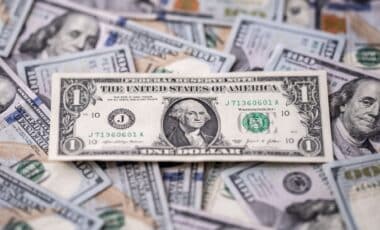The “No Tax on Tips” Act recently passed by the Senate aims to exempt tips from federal income taxes, potentially increasing take-home pay for millions of tipped workers across the United States.
This legislation, supported by both President Trump and former Vice President Kamala Harris, is now being integrated into a broader budget proposal and could take effect starting in 2026.
This change carries significant implications for employees in the restaurant and hospitality sectors, including servers, bartenders, and food delivery drivers. Understanding how this tax reform operates and who benefits is critical for workers and consumers alike.
Current Taxation of Tips and the Scope of the Proposed Change
Currently, federal tax law mandates that all tips—whether cash, credit card, or electronic payments—must be reported as income and are subject to income tax. According to the legislation under negotiation in the House, tip income would no longer be subject to federal income taxes but would still require reporting.
The amount of tips could be deducted “above the line” on tax returns, reducing adjusted gross income and potentially lowering overall tax liability.
This tax break would apply to all employees who receive tips in their roles, including servers, bartenders, baristas, and food delivery drivers. The proposed deduction allows for up to $25,000 in tip income to be exempt, with a phase-out beginning at $160,000 of annual earnings.
The measure does not alter federal minimum wage laws or the practice of employers paying a tipped minimum wage of $2.13 per hour, supplemented by gratuities to meet the federal minimum wage of $7.25 per hour. Importantly, these earnings remain subject to payroll taxes like Medicare and Social Security.
Implications for Restaurant Employees and Customers
For tipped employees, the exemption from federal income tax on tips could increase disposable income by reducing tax burdens on what often constitutes a large portion of their earnings.
According to industry experts and government data, more than two million tipped workers stand to benefit. However, the bill does not change the distribution of tips or affect tip pooling arrangements already in place, meaning back-of-house employees such as cooks and dishwashers remain excluded from receiving tips unless part of a legal tip pool.
From the consumer perspective, the legislation is unlikely to alter tipping behavior significantly.
The tax exemption applies only to those “customarily” tipped, as determined by the Treasury Department. While businesses might be encouraged to promote tipping to attract employees benefiting from this deduction, there is no immediate expectation that customers will face increased pressure to tip.









